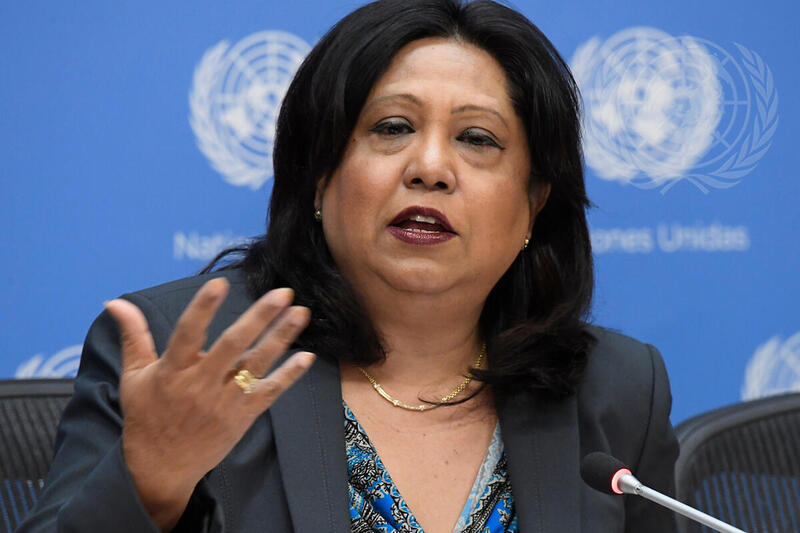The Special Representative of the Secretary-General on Sexual Violence in Conflict, Ms. Pramila Patten, on Tuesday expressed grave concern over atrocities being committed against civilians in the devastating conflict in Sudan, particularly those fleeing war-torn North Darfur and North Kordofan states.
According to a press statement extended to Radio Tamazuj, alarming reports of widespread sexual violence have surged following the Rapid Support Forces’ (RSF) takeover of El Fasher on 26 October after a 500-day brutal siege of the city and surrounding camps.
Nearly 89,000 people have since fled El Fasher and nearby villages. Women and girls who have escaped have reported horrific abuses by the RSF, including gang rapes, mass rape in public, and other acts of sexual violence, both in El Fasher and during their journeys to seek refuge, the statement said.
Patten said women and girls in El Fasher and Bara are not safe from the immediate threat of conflict-related sexual violence and its long-lasting scars.
“Sexual violence has long been a feature of the Sudan conflict, but the current scale and brutality of violations is absolutely shocking,” said the Special Representative. “I call for an immediate cessation of hostilities and urge all parties and their allies to abide by their obligations under international humanitarian law and to protect civilians who remain trapped in El Fasher with no communication to the outside world.”
She categorically condemns the RSF’s large-scale and systematic use of sexual violence, as evidenced by the recent findings of the Independent International Fact-Finding Mission for the Sudan, which indicates the use of sexual violence based on intersecting gender, political, and ethnic factors.
“I call on General Mohamed Hamdan Dagalo ‘Hemedti’, Commander-in-Chief of the RSF, to take immediate measures to prevent all acts of sexual violence, in accordance with his ‘Unilateral Communiqué on Sexual Violence Prevention and Response’ of 4 August 2023 and the accompanying Field Circular/Letter to RSF Commanders, Officers, Junior Officers and Soldiers. These commitments must be more than just words on paper,” Patten stressed.
The Special Representative calls for coordinated international efforts to support investigations, preserve evidence, and guarantee that survivors’ voices are central to accountability processes aimed at ending impunity and restoring the rule of law.
Furthermore, she encourages the Security Council to use all the tools at its disposal to bring peace to Sudan, including the consideration of additional sanctions measures against those who command and perpetrate sexual violence under its 1591 Sanctions regime, in addition to strengthening the enforcement of existing sanctions.
Patten emphasized how the vulnerability of civilians to sexual violence is being exacerbated by overcrowded camps for internally displaced persons (IDPs), and high food insecurity and hunger. She called on all parties to ensure humanitarian access to vital infrastructure, including hospitals and medical centres, and to allow the provision of protection, medical, and psychological services for survivors of sexual violence, including clinical management of rape within the critical 72-hour window for HIV prevention and emergency contraception.
Despite ongoing efforts by the UN and partners to accommodate the needs of new arrivals in host communities and provide healthcare and other essential services, the international community needs to scale up its funding to ensure that comprehensive, multisectoral services are provided to survivors.
“I also call on the RSF to allow the rapid and unhindered delivery of emergency and life-saving assistance to populations in need,” she stated. “I urge the international community to keep Sudan at the top of its priorities and to mobilise all available political, diplomatic, and financial support for affected populations and local communities.”
“We must strengthen our ongoing humanitarian response to meet the critical needs of survivors of conflict-related sexual violence, and end this war of atrocities,” Patten concluded.




